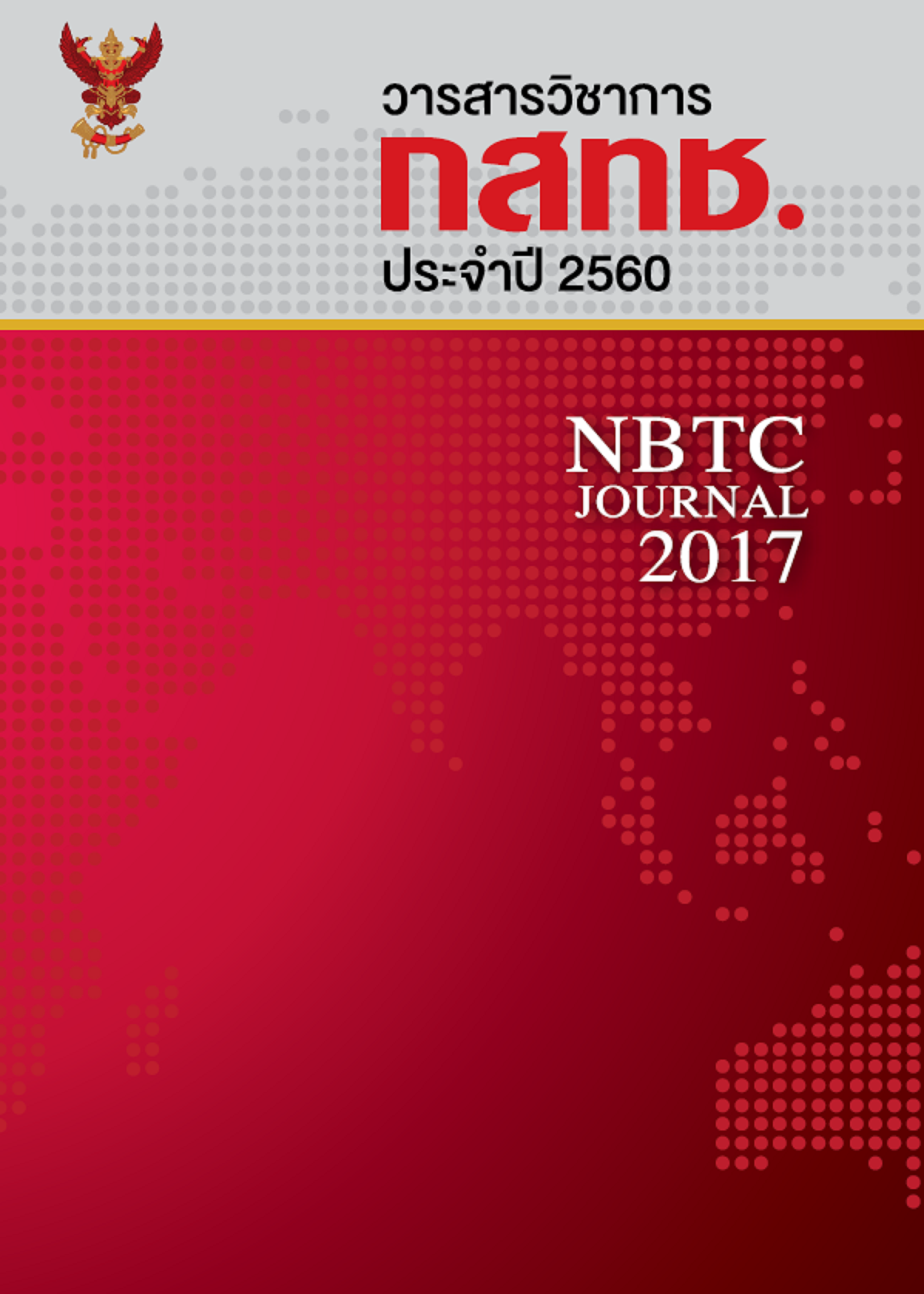บริการ OTT: ความท้าทายต่อสื่อเก่าและการกำกับดูแล
Keywords:
OTT, regulation, media convergence, new media, broadband internetAbstract
The article explores the documentary research method and aims to provide a general understanding of the new service, called OTT or Over-the-Top which affects the persistence of traditional media. The issue of unbalanced regulation between OTT as new media and traditional media was discussed in many countries. This article proposed the policy recommendations for regulating OTT services. Due to the availability of high speed wireless broadband and easier access to a wider range of devices, OTT services have experienced unprecedented growth. So a key challenge in this new era is how to regulate the growing number of onshore and offshore OTT services. Thailand is necessary to support growth in the OTT market because it is considered as a new choice for audiences and technology advances beyond the limited scope of these new media services but consideration for appropriate regulation has the necessary threat as well. Policymakers across the globe are looking at the regulation of OTT services in some of sensitive areas. Regulatory framework must therefore rely on the collaboration of several agencies and stakeholders. In some cases, those may not operate under the jurisdiction of the laws of one country; it should operate by cross countries ‘compliance. For the Net neutrality policy, Thailand should consider very carefully the effect results. In addition, the measures to support and motivation in producing the local content by assigning a proportion is an issue of priority as well.
References
ชลิตา ศรีนวล. “Over-the-Top (โอทีที): สงครามที่เพิ่งเริ่มต้นในระบบนิเวศใหม่ของเทคโนโลยีสารสนเทศและการสื่อสาร”. วารสาร
เทคโนโลยีสารสนเทศ 11, ฉ.1 (2558): 74-81.
ไทม์ คอนซัลติ้ง. รายงานการวิจัยในโครงการศึกษาแนวทางการกำกับดูแลการแข่งขันในกิจการโทรทัศน์แบบ Over the Top.
กรุงเทพ, 2559.
Alan Work. Over The Top: How the internet is (slowly but surely) changing the television industry. USA, 2015.
Graham, A., and Davies, G. Broadcasting Society and Policy in Multimedia Age. Luton: University of Luton
Press,1997.
Janka, John P., ed. The Technology. Media and Telecommunications Review. 3rded. London: Law Business
Research, 2012.
สำนักงานกิจการกระจายเสียง กิจการโทรทัศน์ และกิจการโทรคมนาคมแห่งชาติ. มติ กสทช. 2560.
https://www.nbtc.go.th/Information/cabinet/%E0%B8%A3%E0%B8%B2%E0%B8%A2%E0%B8%87%E0%B8%
B2%E0%B8%99%E0%B8%81%E0%B8%B2%E0%B8%A3%E0%B8%9B%E0%B8%A3%E0%B8%B0%E0%B8%
A%E0%B8%B8%E0%B8%A1-%E0%B8%81%E0%B8%AA%E0%B8%97%E0%B8%8A/%E0%B8%AA%E0%
B8%A3%E0%B8%B8%E0%B8%9B%E0%B8%A1%E0%B8%95%E0%B8%B4%E0%B8%97%E0%B8%B5%
E0%B9%88%E0%B8%9B%E0%B8%A3%E0%B8%B0%E0%B8%8A%E0%B8%B8%E0%B8%A1-%E0%B8%
%E0%B8%AA%E0%B8%97%E0%B8%8A-2560/%E0%B8%AA%E0%B8%A3%E0%B8%B8%E0%B8%9B%
E0%B8%A1%E0%B8%95%E0%B8%B4%E0%B8%97%E0%B8%B5%E0%B9%88%E0%B8%9B%E0%B8%
A3%E0%B8%B0%E0%B8%8A%E0%B8%B8%E0%B8%A1-%E0%B8%81%E0%B8%AA%E0%B8%97%E0%
B8%8A-9-2560.aspx (วันที่สืบค้นข้อมูล: 14 สิงหาคม 2560).
Ericsson Mobility Report (2016, June).“ South East ASIA AND OCEANIA”https://www.ericsson.com/res/docs/2016/
mobility-report/emr-raso-june-2016.pdf (วันที่สืบค้นข้อมูล: 14 สิงหาคม 2560).
Ericsson Mobility Report (2016, June).“ On The Pulse of The Networked Society” https://www.ericsson.com/res/docs
/2016/ericsson-mobility-report-2016.pdf (วันที่สืบค้นข้อมูล: 14 สิงหาคม 2560).
iLaw (18 มิถุนายน 2555). “Net Neutrality: เมื่อผู้ให้บริการอินเทอร์เน็ตถูกคาดหวังให้เป็นกลาง” https://ilaw.or.th/node/1590
(วันที่สืบค้นข้อมูล: 18 สิงหาคม 2560).
Wikipedia. “Net neutrality law” https://en.wikipedia.org/wiki/Net_neutrality_law (วันที่สืบค้นข้อมูล: 18 สิงหาคม 2560)
Downloads
Published
How to Cite
Issue
Section
License
The Office of the NBTC holds the copyright of articles appearing in the journal. The Office of the NBTC allows the public or individuals to distribute, copy, or republish the work under a Creative Commons license (CC), with attribution (BY), No Derivatives (ND) and NonCommercial (NC); unless written permission is received from the Office of the NBTC.
Text, tables, and figures that appear in articles accepted for publication in this journal are personal opinion and responsibility of the author, and not binding on the NBTC and the Office of the NBTC. In case of errors, each author is solely responsible for their own article, and not concerning the NBTC and the NBTC Office in any way.



